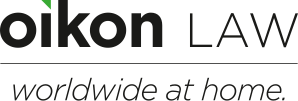Between market and state – is the West tipping towards libertarianism?
Interview with lawyer Thomas Sasse
Mr Sasse, what would it mean if the western social market economy were to be given a libertarian spin?
Thomas Sasse: That would mean a fundamental change to the economic and social model. The social market economy is based on the principle that the market is efficient, but the state sets framework conditions to ensure social security, education, healthcare and fair competition. If the state abandons this regulatory role or regards it as illegitimate, we will move towards unregulated capitalism.
The result would be greater polarisation: while capital and technology continue to concentrate, large sections of society are at risk of being left behind. Access to important services could increasingly on private wealth, while social inequalities escalate. In the long term, this not only jeopardises social cohesion, but also political stability.
What would such a development mean for our legal systems and constitutions?
Thomas Sasse: Our constitutions and legal systems are based on the idea of a balance between freedom and responsibility. A libertarian radicalisation would undermine this principle. Labour law, consumer protection, data protection or anti discrimination rules could be seen as “market barriers” and massively dismantled.
This could lead to a de facto erosion of fundamental rights – not through legal abolition, but through structural changes that render the state incapable of acting. Large corporations and technology platforms could then take more and more decisions that were previously within the democratic sphere. The result would be an increasing shift of power from elected institutions to economic players without democratic legitimisation and accountability.
What consequences would a libertarian turnaround in the USA have for transatlantic relations?
Thomas Sasse: The transatlantic alliance has always been based on a common set of values: democracy, the rule of law and a common vision.
Mixture of market economy and regulation. If the USA abandons this basic consensus and to a radical-libertarian ideology, the balance of power will change dramatically.
Europe could then come under pressure to either adapt or develop its own, opposing path. This would be particularly problematic in terms of security policy. NATO could be called into question if a libertarian America is no longer prepared to integrate itself into multilateral structures. Economically, too, there could be a decoupling if trade is only organised according to the principle of “survival of the fittest”.
Are there also geopolitical risks? Could a libertarian turn in the USA strengthen authoritarian regimes?
Thomas Sasse: . When Western democracies weaken themselves through extreme faith in the market, authoritarian states benefit. China and Russia are already propagating their “strong hand” model as an alternative to Western liberalism.
If the USA withdraws from international structures or only acts in its own interests, many countries, particularly in the global South, could orientate themselves more towards China. This would shake up the current global power structure.
Digitalisation is an important factor. What role do tech companies play in this?
Thomas Sasse: A central one. The world’s largest tech companies – Google, Meta, Amazon, Tesla – are increasingly taking libertarian positions. Executives such as Elon Musk and Peter Thiel are declared opponents of state regulation. Mark Zuckerberg’s mantra “move fast and break things” reflects precisely this mindset.
There is also a close connection between libertarianism and the world of cryptocurrencies. The cypherpunks who invented Bitcoin were strongly influenced by libertarian ideas. Their goal is an economy that is completely independent
from state institutions. In theory, this sounds like more freedom – in practice, it could mean that financial power falls into the hands of a few players who can hardly be regulated.
If the influence of these platforms continues to grow, they could de facto legislators. Their influence on markets, opinion-forming and even electoral processes is already enormous. States would then have to ask themselves: who actually governs – elected governments or the algorithms of some
Tech giants?
What options does Europe have? Should it follow the libertarian course of the USA or develop a counter-strategy?
Thomas Sasse: Europe has the opportunity to develop an alternative model – a model that combines innovation and economic dynamism with a strong constitutional state and social security. A model based on regulated digitalisation, sustainable growth and strategic autonomy.
However, this requires political courage. Europe should reduce its economic and security policy dependence on the USA and position itself as an independent force. For example, it could develop a European technology strategy so as not to be completely dependent on American platforms. Or establish a financial policy that promotes innovation but prevents speculative excesses.
A European counterweight could also become attractive for other countries looking for an alternative to the American or Chinese model.
In conclusion: How can the West arm itself in the long term against the dangers of a radical libertarian development?
Thomas Sasse: It is crucial that we maintain the balance between the market and the state. History shows that democracies that destabilise themselves through too much faith in the market often become susceptible to authoritarian counter movements.
The state must set the right guard rails: not too much regulation so as not to stifle innovation – but also not too little so as not to allow economic power to become uncontrolled. This requires a strong civil society, critical media and a political culture that resists extreme simplifications.
The coming years will show whether the West is up to this challenge. An uncontrolled libertarian development could undermine democracy itself. The course is being set now.
Thank you very much, Mr Sasse, for the interview.
